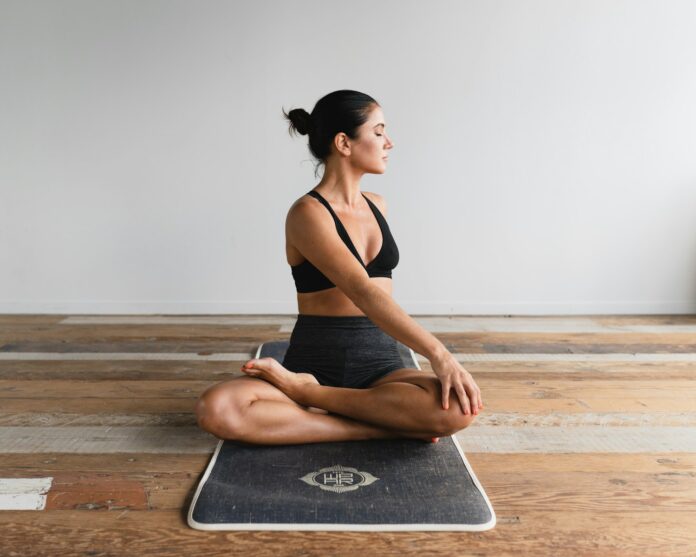Social media has transformed the way we approach fitness, providing inspiration, education, and connection at the touch of a screen. Platforms like Instagram, TikTok, and YouTube have become hubs for fitness enthusiasts, personal trainers, and influencers to share workouts, nutrition tips, and motivational content. While social media can be a powerful tool to shape fitness goals, it also comes with potential pitfalls. Here’s a closer look at how social media influences fitness goals and how to use it effectively.
Positive Impacts of Social Media on Fitness Goals
1. Inspiration and Motivation
Social media platforms are filled with content that can inspire and motivate users to stay active and pursue their fitness goals.
Examples:
- Transformation stories that demonstrate what’s possible with consistency and dedication.
- Fitness challenges that encourage participation and accountability.
- Motivational quotes and daily reminders to prioritize health.
Why It’s Beneficial:
Seeing others achieve their goals can boost your own drive and help you stay focused.
2. Access to Free Knowledge
Fitness influencers and professionals often share tips, workout routines, and nutrition advice for free.
What You Can Learn:
- Proper exercise techniques through instructional videos.
- Healthy recipes to support your fitness journey.
- Science-backed insights into fitness and recovery.
Pro Tip:
Follow certified trainers or licensed dietitians to ensure the information you consume is accurate and safe.
3. Building Community and Accountability
Social media connects users with like-minded individuals, creating a sense of community.
How It Helps:
- Fitness groups and forums provide support and encouragement.
- Sharing progress updates keeps you accountable to your goals.
- Collaborating on challenges or group workouts fosters motivation.
4. Diverse Representation
Social media showcases a wide range of body types, fitness levels, and workout styles, promoting inclusivity.
Why It Matters:
This diversity helps individuals find relatable content and realistic role models that align with their unique fitness goals.
Negative Impacts of Social Media on Fitness Goals
1. Unrealistic Expectations
Many influencers showcase heavily edited photos or content that sets unattainable standards.
Potential Risks:
- Comparing yourself to others can lead to frustration and low self-esteem.
- Believing in “quick fixes” like detox teas or extreme diets.
What to Remember:
Progress is personal, and social media often only shows the highlights, not the struggles.
2. Information Overload
With so much content available, it can be challenging to distinguish credible advice from misleading trends.
Examples of Misleading Trends:
- “Spot-reduction” workouts that claim to target fat in specific areas.
- Fad diets with little to no scientific backing.
- Overemphasis on aesthetics over health.
3. Pressure to Perform
The desire to share progress publicly can create pressure to achieve results quickly, leading to burnout or unhealthy habits.
4. Algorithm Influence
Social media algorithms prioritize viral content, which isn’t always accurate or safe. Flashy workouts or extreme diets may overshadow sustainable practices.
How to Use Social Media Effectively for Fitness
1. Curate Your Feed
Follow accounts that align with your goals and values.
Who to Follow:
- Certified fitness trainers and nutritionists.
- Body-positive influencers promoting holistic health.
- Communities or groups focused on realistic, sustainable fitness.
2. Verify Information
Check the credentials of influencers and cross-reference advice with reputable sources.
Pro Tip:
Look for certifications like NASM, ACE, or registered dietitian credentials.
3. Set Personal Goals
Use social media for inspiration, but set goals that are realistic and tailored to your needs.
Examples:
- “I will complete 3 strength-training sessions per week.”
- “I will focus on improving flexibility over the next month.”
4. Limit Screen Time
Too much scrolling can lead to comparison and distraction. Set boundaries to ensure social media enhances, rather than hinders, your progress.
5. Engage Mindfully
Participate in challenges or share progress only if it adds value to your journey, not out of obligation or fear of judgment.
Popular Fitness Trends on Social Media
1. Fitness Challenges
Challenges like the “30-Day Plank Challenge” or “Couch to 5K” are widely shared, motivating users to stay consistent.
2. Home Workouts
COVID-19 accelerated the popularity of home workouts, with influencers sharing bodyweight routines that require minimal equipment.
3. Nutrition Tips and Meal Prepping
Meal prep hacks and easy, healthy recipes are among the most engaging fitness-related content.
4. Wearable Tech Integration
Many users share data from fitness trackers like Apple Watch or Fitbit, sparking interest in measurable progress.
The Role of Influencers in Shaping Fitness Goals
Fitness influencers often shape how followers perceive health and wellness.
Positive Contributions:
- Provide relatable success stories.
- Share tips and routines for free.
- Create accessible workout programs.
Potential Downsides:
- Promote products or programs that may not suit everyone.
- Set unrealistic expectations with heavily curated content.
How to Engage Wisely:
Look for influencers who prioritize transparency, authenticity, and safety in their content.
How Myprotein Supports Social Media-Inspired Fitness Goals
Stay fueled and recover effectively with Myprotein, offering:
- Protein Powders: Essential for muscle repair and growth.
- Pre-Workout Formulas: Boost energy for intense workouts.
- BCAAs and Recovery Products: Reduce soreness and optimize recovery.
Visit Myprotein for science-backed supplements that align with your goals.
Conclusion
Social media can be a powerful tool to inspire and shape your fitness journey, offering motivation, education, and community. However, it’s essential to navigate it mindfully, avoiding unrealistic comparisons and misinformation. Use social media as a source of support and inspiration, but always prioritize your personal needs and well-being.
For more tips on achieving your fitness goals, visit News Box. “Let social media be a tool for growth, not a source of pressure—your journey is uniquely yours.”

